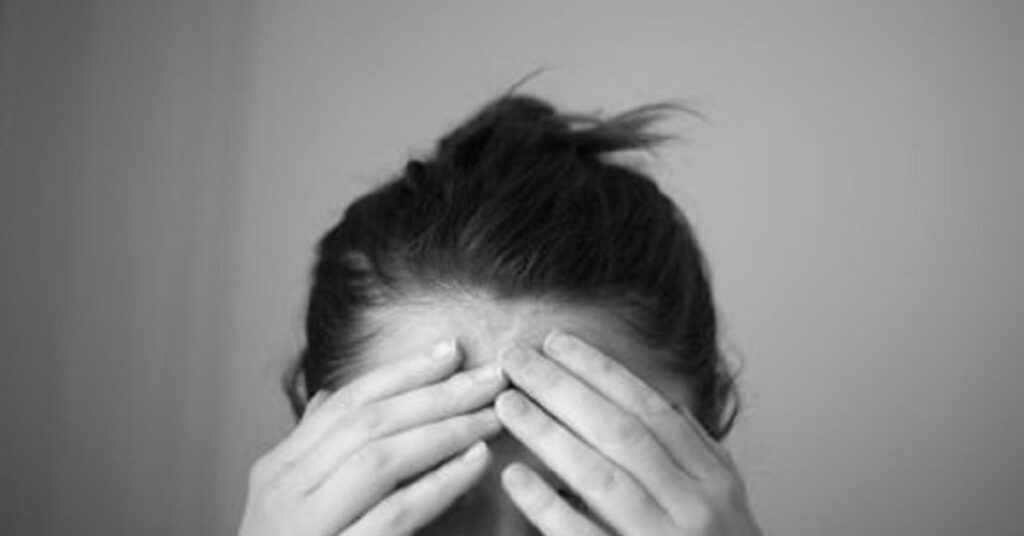Menopause is a natural phase in every woman’s life, marking the end of menstrual cycles and fertility. While most people associate menopause with physical symptoms like hot flashes and night sweats, its impact on mental health is equally important. Women often experience mood swings, anxiety, irritability, and even depression during menopause due to hormonal fluctuations. These emotional changes can be confusing and overwhelming, especially when combined with physical discomfort and life stressors. Understanding the connection between menopause and mental health is the first step toward managing it effectively. This article explores the psychological challenges of menopause and offers solutions for emotional well-being.
Hormonal Changes and Brain Chemistry
During menopause, levels of estrogen and progesterone decline significantly. These hormones are not only important for reproduction but also play a key role in regulating mood and brain function. Estrogen, for instance, affects the production of serotonin and dopamine—chemicals that help maintain a stable mood. As these hormone levels fluctuate, so does brain chemistry, leading to mood swings, sadness, and difficulty concentrating.
Common Emotional Symptoms of Menopause
Many women experience a wide range of emotional symptoms during menopause, such as:
- Sudden mood changes
- Irritability and frustration
- Anxiety and nervousness
- Sadness or tearfulness
- Feelings of being overwhelmed
- Low motivation or energy
These symptoms may appear daily or fluctuate with hormone levels, making them hard to predict or manage without support.
Menopause and Depression
While menopause itself doesn’t directly cause clinical depression, it increases the risk—especially in women with a history of mood disorders. Lower estrogen levels can make existing depression worse or bring on new episodes. Lack of sleep, hot flashes, and weight gain can further affect self-esteem and contribute to emotional distress. Women with no prior mental health issues may still feel unusually low or hopeless during this transition.
Anxiety During Menopause
Menopause can also trigger or worsen anxiety symptoms. These may include racing thoughts, tension, panic attacks, and restlessness. The unpredictability of hormonal shifts, along with stress about aging, body changes, or family pressures, can heighten feelings of anxiety. Women who are already prone to anxiety may find menopause especially challenging.
Sleep Disturbances and Their Mental Impact
Insomnia and disrupted sleep are common during menopause due to night sweats or hormonal imbalances. Lack of quality sleep negatively affects mood, increases irritability, and lowers emotional resilience. Women often report feeling more emotional, impatient, or mentally drained after several nights of poor sleep.
Memory Issues and Brain Fog
Many women report “brain fog” during menopause—trouble concentrating, forgetfulness, or slow thinking. These cognitive changes can be alarming and may interfere with work or daily responsibilities. Though usually temporary, they add to feelings of frustration and emotional fatigue.
Body Image and Self-Esteem
Physical changes such as weight gain, hair thinning, and skin aging can affect body image and confidence. Women may feel less attractive or disconnected from their identity, especially in cultures that place a high value on youthfulness. This decline in self-esteem can impact relationships and overall mental well-being.
Relationship and Social Impact
Emotional instability can strain personal relationships. Mood swings or low libido may lead to misunderstandings with partners or children. Women may also feel withdrawn, isolated, or less interested in social activities. These changes can increase the risk of loneliness, which negatively affects mental health.
The Role of Life Transitions
Midlife is often a time of other major changes—empty nest syndrome, career shifts, aging parents, or marital stress. These factors, combined with menopause, can overwhelm a woman emotionally. It’s important to distinguish between menopause-related mental health symptoms and those caused by external life events, as both often occur simultaneously.
Coping Strategies for Emotional Health During Menopause
- Exercise regularly: Boosts mood and reduces stress
- Eat a balanced diet: Supports hormone regulation
- Get enough sleep: Prioritize rest and reduce screen time before bed
- Practice mindfulness or yoga: Helps reduce anxiety and improve focus
- Talk about it: Share your feelings with friends, family, or support groups
- Limit alcohol and caffeine: These can worsen mood swings and anxiety
When to Seek Professional Help
If emotional symptoms are severe, long-lasting, or interfere with daily life, it’s important to consult a healthcare provider. Therapists, psychologists, or psychiatrists can offer talk therapy, cognitive behavioral therapy (CBT), or medications like antidepressants if needed. Hormone replacement therapy (HRT) may also help improve mood symptoms in some women.
Natural and Medical Treatments for Mood Support
- Herbal supplements: Such as black cohosh or evening primrose (consult a doctor first)
- HRT (Hormone Replacement Therapy): Can help with mood and hot flashes
- SSRIs or antidepressants: May be prescribed for clinical depression or anxiety
- Cognitive-behavioral therapy (CBT): Effective for mood swings and depression
Building a Support System
Menopause can feel isolating, especially when mental health suffers. Creating a strong support system of friends, family, and healthcare providers can make a big difference. Joining menopause support groups—online or in-person—can also provide emotional relief and shared experiences.
Long-Term Outlook
The emotional symptoms of menopause may feel overwhelming, but they are usually temporary. With proper care, many women feel better after the menopausal transition is complete. It’s a time to reassess priorities, practice self-care, and focus on wellness. Mental health should be taken just as seriously as physical health during this stage of life.
Conclusion
Menopause brings emotional challenges that are just as real as the physical ones. Mood swings, anxiety, depression, and brain fog are common but manageable with the right support and care. By understanding how menopause affects mental health and taking proactive steps—through lifestyle changes, therapy, or medication—women can navigate this phase with strength and clarity. With awareness and support, menopause can become a period of growth, renewal, and emotional resilience.

